Democratic Republic Of Congo
The Armed Forces of the DRC has accused the Rwandan military group by the name Buhumba of infiltrating and invading the Nyiragongo region in North Kivu located in the eastern parts of the country.
Kinshasa claims to have recovered one Rwandan weapon and a few other items and further claimed that the forces had occupied six villages at the time.
"We had just woken up when we heard gunshots. A lot of shots! A few minutes later we saw Rwandan soldiers arrive in our neighborhood, and we had no choice but to flee and leave our cattle behind, and when we returned, they had already taken everything away;" a resident explained.
The Congolese civil society groups blamed the national apparatus for not issuing them security against eternal invasion.
"The Rwandan army is organized at the border but the Congolese army is not organized because of the lack of manpower and the lack of logistics capable of containing the attacks that can occur at any time," said Mambo Kawaya, a rights activist from the area.
Meanwhile, the Congolese army claimed to have repelled this incursion
"The North Kivu operational sector Sokola2 confirms the invasion of external elements on Congolese soil. They occupied 6 villages and had come through 200 meters from the national road number 2. We have recovered a weapon from them which we have presented to the press. We have also recovered looted items," Major Guillaume Njike Kaiko, army spokesperson in the area.
For nearly four months, civil society in the Nyiragongo area has been warning of the presence of the Rwandan army on Congolese soil.




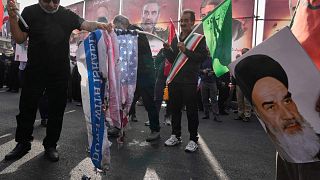
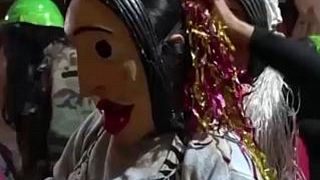

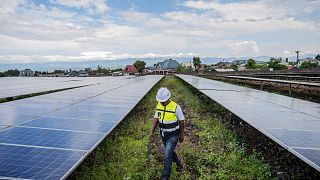
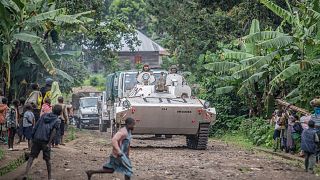
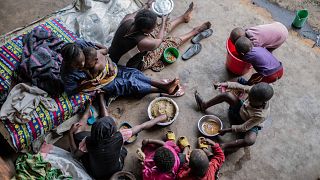



02:13
Congo and Rwanda sign a US-mediated peace deal aimed at ending decades of bloody conflict
00:54
African Human Rights court says it can hear case brought by DRC against Rwanda
01:13
17 soldiers killed as gunmen raid army bases in northern Nigeria
01:20
Somalia launches Centennial Vision 2060 roadmap for 'peace, prospertity and progress'
01:01
Rwandan opposition leader Ingabire arrested in connection with alleged plot to overthrow president
00:57
Kenyan police officer arrested for shooting unarmed man in the head